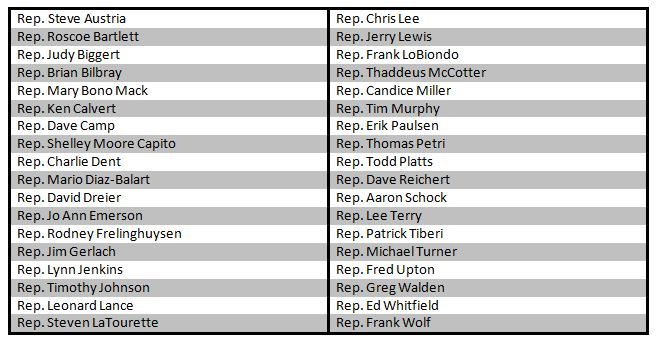The Midterm's Real Winners: GOP Centrists
 Everyone's knows about the tea party's winners, but political watchers have overlooked the many moderate Republicans also headed to Washington.
Everyone's knows about the tea party's winners, but political watchers have overlooked the many moderate Republicans also headed to Washington.
Many news organizations focused on tea party backed candidates who won on election night. But in the midst of all the numbers and narratives, some have overlooked the number of centrists that will be heading to D.C., and the number of moderate Republicans that have been reelected.
Just how many tea partiers won on Tuesday? MSNBC’s First Read takes a swing at answering this question, calculating that only 32% of Tea Party candidates won election.
But even this may overstate the case – and may illustrate the challenges in identifying ‘tea party winners’. Indeed, among the group that MSNBC identifies, there are a good number of candidates who could be considered moderate Republicans.
To be fair, MSNBC notes that their method “is undoubtedly inexact”. But if by Tea Party we mean people like Sarah Palin, Pat Toomey and Christine O’Donnell, we should pull some of the moderate Republicans out of this list:
- Joe Heck (NV-3), for example, is a former state legislator with a moderate record in the Nevada House. In contrast to Sharron Angle, who was the most conservative state legislator, Heck was less conservative than two-thirds of his fellow Republicans.
- Mick Mulvaney (SC-5) was Sen. Lindsey Graham’s former counsel on the Judiciary committee. Mulvaney may have been a bit more conservative, but the fact that he worked with Graham says something about his ideology.
- Mike Lee (UT-SEN) was a former counsel for Jon Huntsman, no right-wing fire breather himself.
- Michael Grimm (NY-13) was endorsed by Sarah Palin, but note that he was also endorsed by Rudy Giuliani and Sen. John McCain.
- Sean Duffy (WI-07) is a former prosecutor (and former Real World star) who lives in a district that is D+3. He’ll want to get reelected, so will have to stay close to the center.
The MSNBC story illustrates the problems the media has had covering the tea party. It reminds me of a story that The Hill wrote about J.D. Hayworth, which turned out to be entirely false:
“The Tea Party is expected to announce that former Rep. JD Hayworth (R-Ariz.) will become a national spokesperson for the movement, a source close to the matter told The Hill.”
Which tea party? And in the context of evaluating the success of the tea party, who can truly be considered a tea partier? Is it simply about being ostentatious, like Christine O’Donnell and Sarah Palin? Or do you have to be a right-wing conservative as well?
Further, in the wake of all these stories about a tea party wave, let’s not forget the other moderate, centrist Republicans that were elected on Tuesday.
- Nan Hayworth (NY-19) is a pro-choice Republican elected in the northern suburbs of New York City. See our interview with her here.
- Charlie Bass (NH-2) is a former U.S. Representative who is a member of Republicans for Environmental Protection and the Republican Majority for Choice. In fact, he’s a former leader in the Republican Main Street Partnership, a group for centrist Republicans.
- Mike Fitzpatrick (PA-8) was a U.S. Congressman from 2005 to 2007. During his time in Congress, Fitzpatrick garnered an ACU voting record of 53. “He compiled a rather liberal voting record, on par with Chris Shays of Connecticut, and more liberal than Joseph Cao’s,” writes Dr. Boris Shor of the University of Chicago.
- Randy Hultgren (IL-14) – As a state legislator in Illinois, he “is about where Scott Brown is on the issues,” says Dr. Boris Shor.
- Lou Barletta (PA-11, D+4), Pat Meehan (PA-7, D+3), and Bobby Schilling (IL-17, D+3), are all Congressmen in Democratic-leaning districts. If they want to win reelection in two years when Obama is on the ballot, they will have to collect a pretty centrist voting record.
Yes, Rep. Charles Djou and Rep. Joseph Cao lost on election night. But let’s not forget Senator-elect Mark Kirk.
And let’s also not forget the members of the centrist Republican Main Street Partnership that won reelection too:
The predominant media narrative is that the tea party swept the nation. But could that have been overstated? In the rush to declare victory for tea party conservatives, have we forgotten the Republican moderates that have won?


